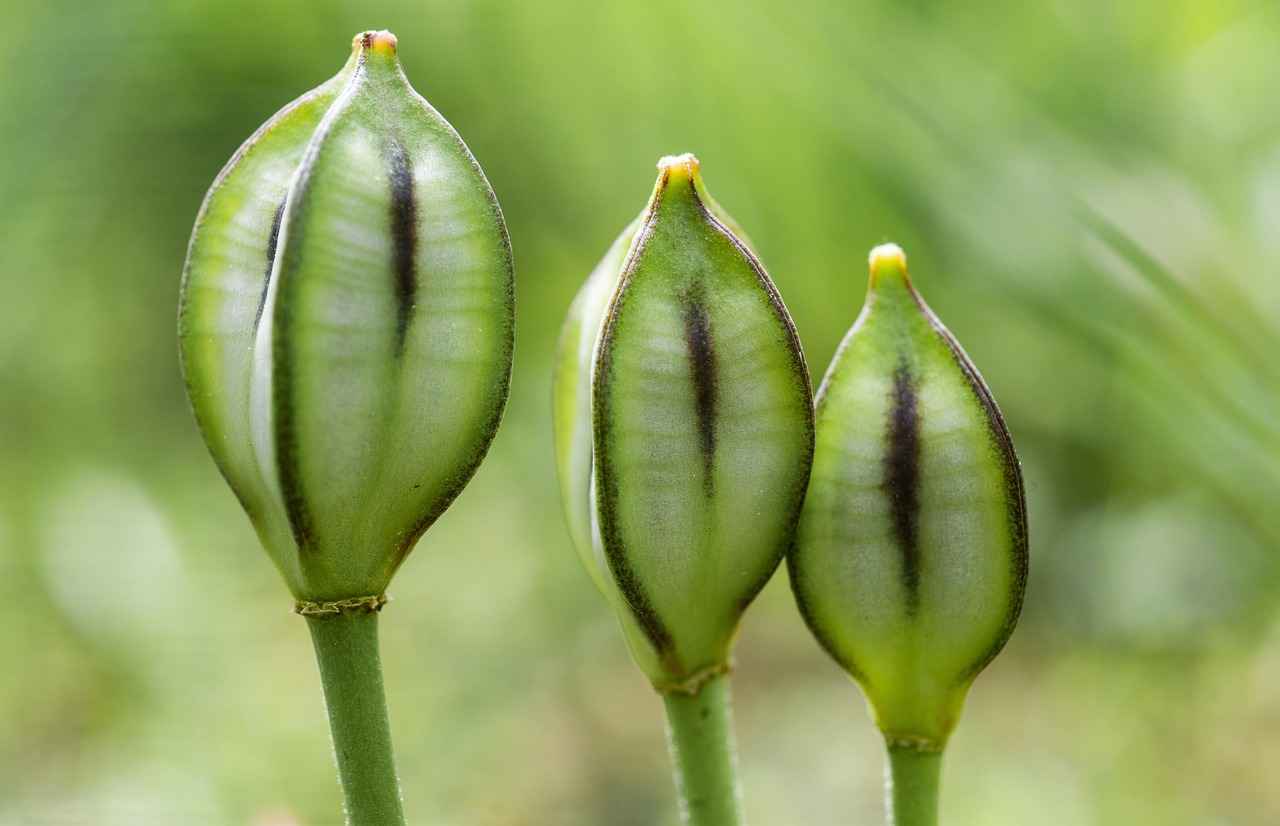This article delves into the numerous health benefits of chia seeds, emphasizing their nutritional value, versatility, and how they can enhance your overall well-being. Chia seeds, derived from the Salvia hispanica plant, are small but mighty, making them a popular choice among health enthusiasts.
What Are Chia Seeds?
Chia seeds are tiny, nutrient-dense seeds that come from a plant native to Mexico and Guatemala. They have become a staple in many diets due to their impressive health benefits and culinary versatility. These seeds can absorb liquid, forming a gel-like substance, which makes them ideal for various recipes.
Why Are Chia Seeds Nutritional Powerhouses?
Packed with essential nutrients, chia seeds are an excellent source of fiber, protein, omega-3 fatty acids, and various vitamins and minerals. Just two tablespoons of chia seeds contain:
| Nutrient | Amount |
|---|---|
| Calories | 138 |
| Fiber | 10g |
| Protein | 5g |
| Omega-3 Fatty Acids | 5g |
How Do Chia Seeds Promote Digestive Health?
The high fiber content in chia seeds aids digestion by promoting regular bowel movements and supporting gut health. This can contribute to overall digestive wellness, making chia seeds a valuable addition to your diet.
Can Chia Seeds Help with Weight Management?
Chia seeds can assist in weight management due to their ability to absorb water and swell, creating a feeling of fullness. This effect may help reduce overall calorie intake, making them a great snack for those looking to maintain or lose weight.
Are Chia Seeds Beneficial for Heart Health?
Rich in omega-3 fatty acids, chia seeds can help lower cholesterol levels and reduce inflammation. This contributes to better heart health and a lower risk of cardiovascular diseases, making chia seeds a heart-friendly food choice.
How Do Chia Seeds Support Bone Health?
Chia seeds contain essential minerals like calcium, phosphorus, and magnesium, which are crucial for maintaining strong bones and preventing osteoporosis. Including chia seeds in your diet can help ensure you meet your daily mineral requirements.
What Role Do Chia Seeds Play in Blood Sugar Regulation?
The soluble fiber in chia seeds can slow down the absorption of sugar in the bloodstream. This helps stabilize blood sugar levels and may reduce the risk of diabetes, making chia seeds beneficial for individuals with insulin sensitivity.
Can Chia Seeds Enhance Athletic Performance?
Chia seeds are often favored by athletes for their energy-boosting properties. They provide sustained energy during prolonged physical activity, making them an ideal snack for those engaged in endurance sports.
How Can You Incorporate Chia Seeds into Your Diet?
Chia seeds can be easily added to various dishes, including:
- Smoothies
- Yogurt
- Salads
- Baked goods
This versatility allows you to enhance your meals with nutrition effortlessly.
Are There Any Potential Side Effects of Chia Seeds?
While generally safe for most people, excessive consumption of chia seeds may lead to digestive issues or allergic reactions in some individuals. It is essential to consume them in moderation to avoid any adverse effects.
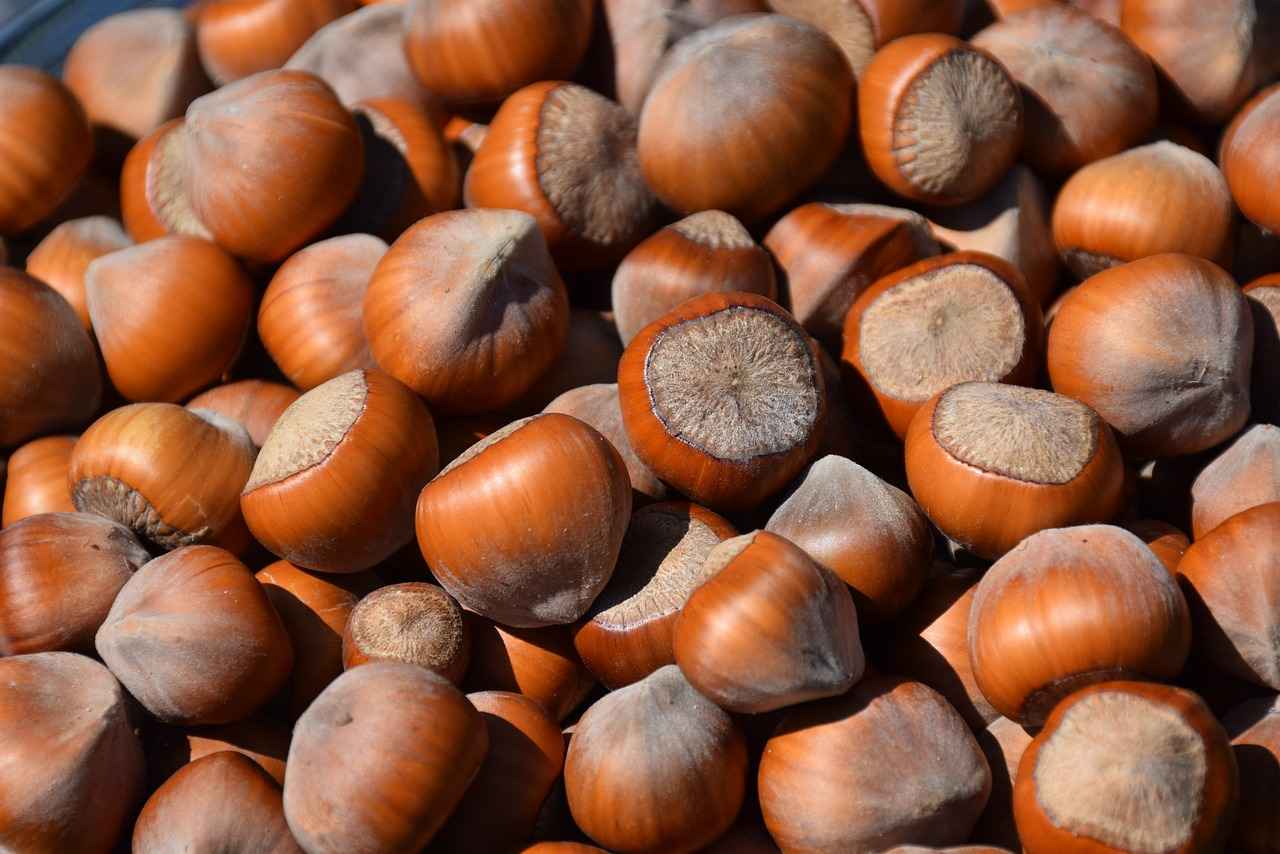
What Are Chia Seeds?
Chia seeds are tiny, nutrient-dense seeds that come from the Salvia hispanica plant, which is native to Mexico and Guatemala. These seeds have surged in popularity in recent years, thanks to their remarkable health benefits and culinary versatility. Rich in essential nutrients, they can be easily integrated into various meals, making them a favorite among health enthusiasts.
Chia seeds are small, oval-shaped seeds that can vary in color from white to black. They are known for their ability to absorb water and form a gel-like consistency, which enhances their digestive benefits. Historically, chia seeds were a staple in the diet of ancient civilizations, including the Aztecs and Mayans, who valued them for their energy-boosting properties.
Chia seeds are packed with essential nutrients, making them an excellent addition to any diet. They are an outstanding source of fiber, which promotes digestive health, and they contain a significant amount of protein, making them a great option for vegetarians and vegans. Additionally, chia seeds are rich in omega-3 fatty acids, which are crucial for heart health, as well as various vitamins and minerals such as calcium, magnesium, and phosphorus.
The high fiber content in chia seeds plays a vital role in promoting digestive health. By absorbing water, these seeds expand in the stomach, which helps to create a feeling of fullness and supports regular bowel movements. This can be particularly beneficial for those struggling with constipation or other digestive issues.
Chia seeds can be beneficial for weight management due to their unique ability to absorb liquid and swell in the stomach. This expansion can create a sense of satiety, potentially leading to reduced calorie intake. Incorporating chia seeds into meals can help control hunger and support weight loss efforts.
Rich in omega-3 fatty acids, chia seeds can contribute to improved heart health. These healthy fats are known to lower cholesterol levels and reduce inflammation, which can decrease the risk of cardiovascular diseases. Regular consumption of chia seeds can help maintain a healthy heart and improve overall cardiovascular function.
Chia seeds are an excellent source of essential minerals such as calcium, phosphorus, and magnesium, all of which are crucial for maintaining strong bones. Including chia seeds in your diet can help prevent osteoporosis and support overall bone health.
The soluble fiber found in chia seeds can slow the absorption of sugar in the bloodstream, helping to stabilize blood sugar levels. This property can be particularly beneficial for individuals with diabetes or those at risk of developing the condition, as it may help to reduce blood sugar spikes.
Athletes often turn to chia seeds for their energy-boosting properties. The seeds provide a sustained release of energy, making them an ideal snack before or during prolonged physical activity. Their combination of carbohydrates, protein, and healthy fats can help improve endurance and overall athletic performance.
Incorporating chia seeds into your diet is easy and versatile. They can be added to smoothies, yogurt, salads, and baked goods. Additionally, chia seeds can be used to create chia pudding or as a thickening agent in soups and sauces. Their mild flavor allows them to blend seamlessly into a variety of dishes.
While chia seeds are generally safe for most individuals, excessive consumption may lead to digestive issues such as bloating or gas. It is essential to introduce them gradually into your diet and drink plenty of water to help with digestion. In rare cases, some individuals may experience allergic reactions, so moderation is key.
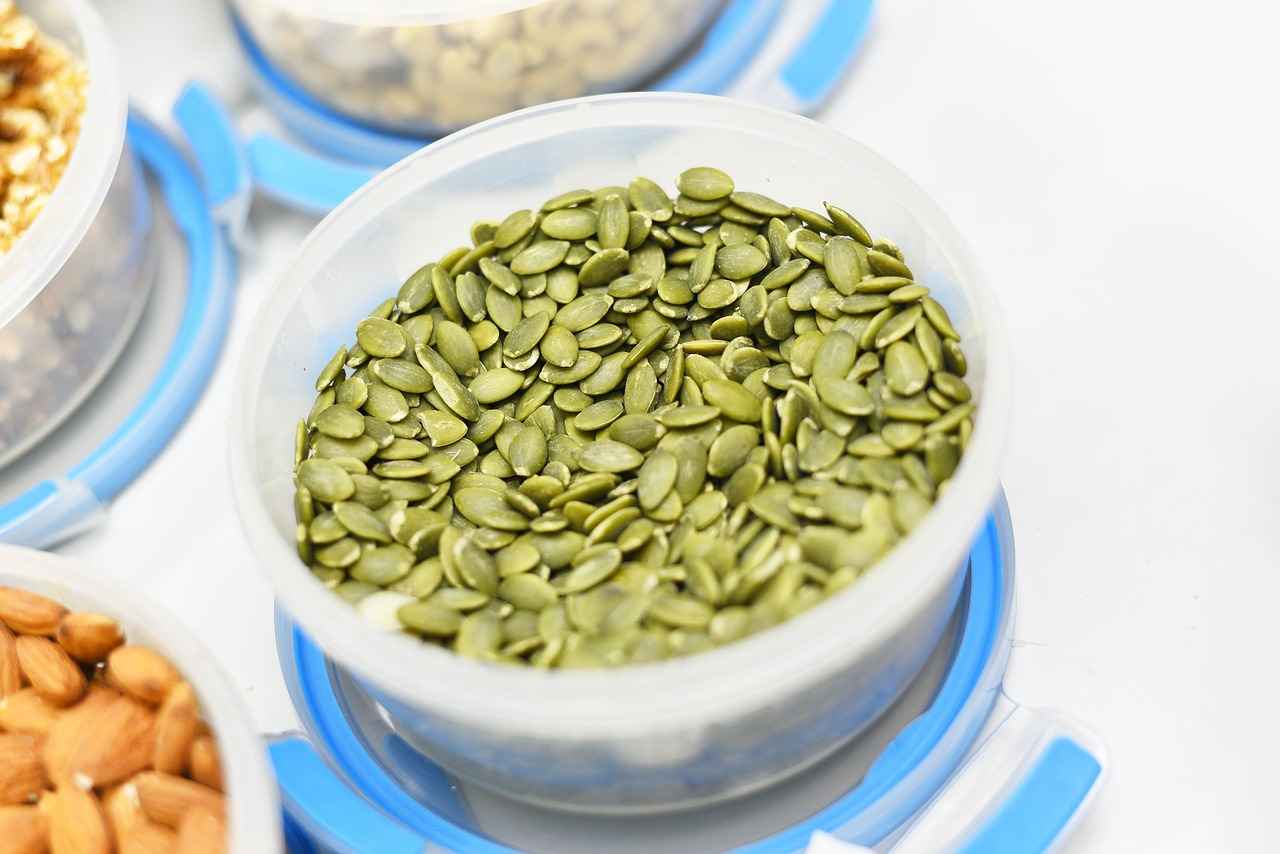
Why Are Chia Seeds Nutritional Powerhouses?
Chia seeds have emerged as a popular superfood in recent years, and for good reason. These tiny seeds, native to Mexico and Guatemala, pack a significant nutritional punch. They are not just a trendy addition to health smoothies; rather, they are a nutritional powerhouse that can enhance your overall well-being in various ways.
One of the standout features of chia seeds is their impressive fiber content. Each serving contains a substantial amount of dietary fiber, which is essential for maintaining a healthy digestive system. Fiber aids in promoting regular bowel movements and can help prevent constipation. Additionally, it plays a role in supporting gut health by acting as a prebiotic, feeding the beneficial bacteria in your gut.
Chia seeds are also an excellent source of plant-based protein. For those following vegetarian or vegan diets, they provide a complete protein source, containing all nine essential amino acids. This makes chia seeds a fantastic option for muscle repair and growth, especially for athletes and active individuals.
Moreover, chia seeds are rich in omega-3 fatty acids, particularly alpha-linolenic acid (ALA). Omega-3s are known for their heart health benefits, including reducing inflammation and lowering cholesterol levels. Incorporating chia seeds into your diet can help support cardiovascular health and reduce the risk of heart disease.
In addition to fiber, protein, and omega-3s, chia seeds are loaded with various vitamins and minerals. They are a good source of calcium, phosphorus, magnesium, and manganese, all of which are vital for maintaining strong bones and overall health. This mineral content makes chia seeds a valuable addition to your diet, especially for those concerned about bone health.
Another noteworthy aspect of chia seeds is their ability to absorb water and form a gel-like consistency. This unique property contributes to a feeling of fullness, which can be beneficial for those looking to manage their weight. By incorporating chia seeds into meals, you may find it easier to control your appetite and reduce overall calorie intake.
Chia seeds are incredibly versatile and can be easily incorporated into various dishes. You can add them to smoothies, sprinkle them on yogurt, mix them into salads, or even use them in baking. Their neutral flavor makes them a seamless addition to many recipes, allowing you to boost the nutritional value of your meals effortlessly.
In summary, chia seeds are truly a nutritional powerhouse. With their high fiber content, complete protein profile, rich omega-3 fatty acids, and an abundance of essential vitamins and minerals, they deserve a prominent place in your kitchen. Whether you are looking to enhance your digestive health, support heart health, or manage your weight, chia seeds can play a significant role in achieving your health goals.
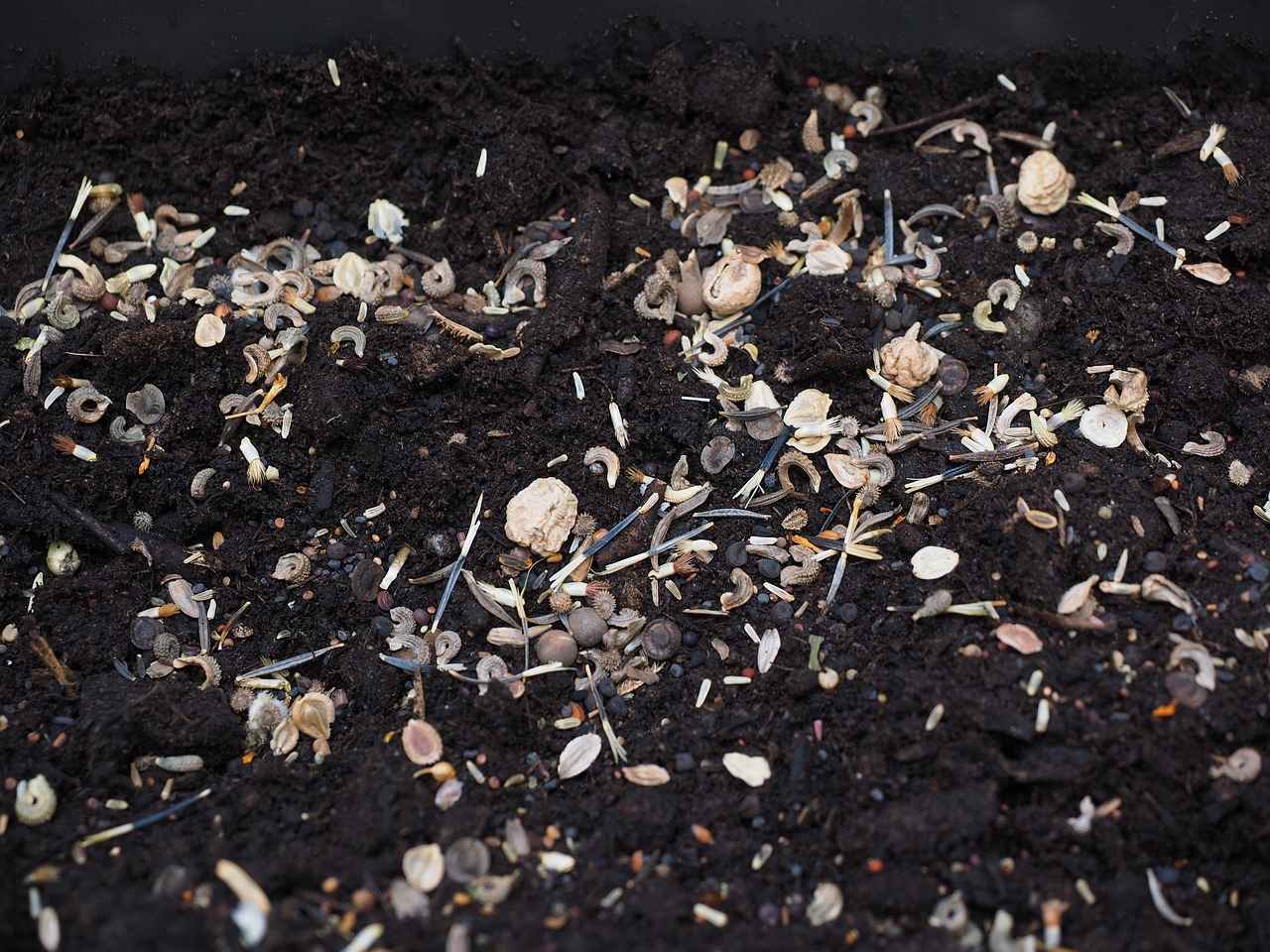
How Do Chia Seeds Promote Digestive Health?
Chia seeds have emerged as a popular superfood, not only for their versatility in cooking but also for their impressive health benefits. Among these benefits, their role in promoting digestive health is particularly noteworthy. The high fiber content in chia seeds plays a crucial part in maintaining a healthy digestive system.
The fiber content in chia seeds is one of the highest among plant-based foods. Each serving of chia seeds contains approximately 11 grams of fiber, which is essential for proper digestion. Fiber is known to help regulate bowel movements by adding bulk to the stool, thereby preventing constipation. This bulk-forming property of fiber ensures that waste is efficiently moved through the digestive tract, promoting regularity.
Moreover, the soluble fiber found in chia seeds absorbs water and forms a gel-like substance in the gut. This gel not only aids in creating a feeling of fullness but also slows down the digestion process, which can be beneficial for those managing their weight. By slowing digestion, chia seeds help maintain steady blood sugar levels, which is particularly important for individuals with diabetes.
In addition to aiding in bowel regularity, chia seeds also support gut health. The fiber in chia seeds acts as a prebiotic, providing nourishment for the beneficial bacteria in the gut. A healthy gut microbiome is essential for overall digestive wellness, as it helps in the fermentation of fiber, leading to the production of short-chain fatty acids (SCFAs) that have anti-inflammatory properties. These SCFAs can enhance gut barrier function and reduce the risk of digestive disorders.
Furthermore, chia seeds are rich in antioxidants, which can help combat oxidative stress in the gut. This is important because oxidative stress can lead to inflammation and various digestive issues. By incorporating chia seeds into your diet, you may not only improve your digestive health but also support your body’s overall ability to manage inflammation.
To incorporate chia seeds into your daily routine, consider adding them to smoothies, yogurt, or salads. They can also be used in baking or as a thickening agent in soups and sauces. Soaking chia seeds in water or plant-based milk before consumption can enhance their digestibility and improve nutrient absorption.
While chia seeds are generally safe for most people, it is important to consume them in moderation. Excessive intake may lead to digestive discomfort, such as bloating or gas. It is advisable to start with a small amount and gradually increase your intake to allow your digestive system to adjust.
In summary, chia seeds serve as a remarkable ally in promoting digestive health. Their high fiber content not only aids in regular bowel movements but also supports gut health and provides numerous other benefits. By incorporating these tiny seeds into your diet, you can enjoy the multitude of advantages they offer for your digestive system and overall well-being.
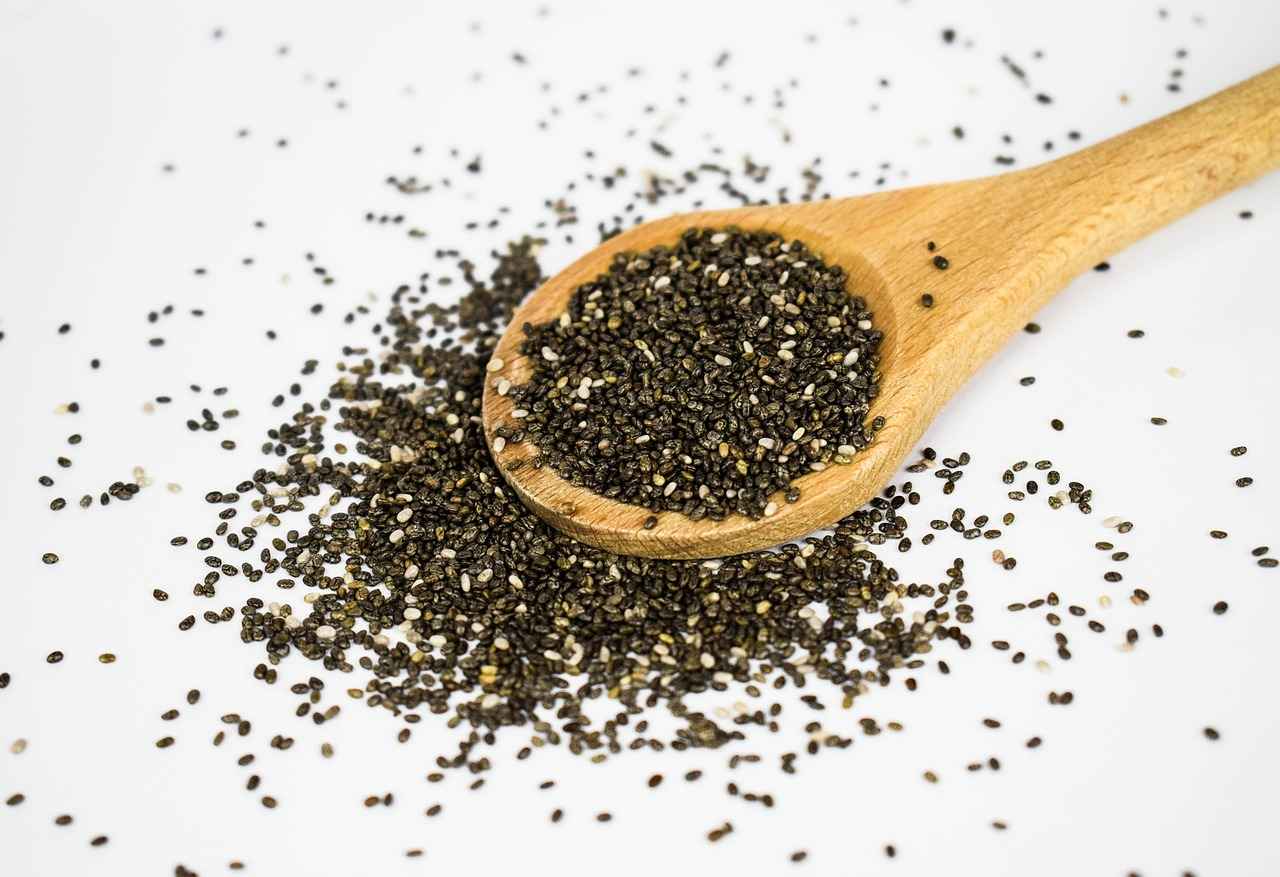
Can Chia Seeds Help with Weight Management?
Chia seeds have become a popular addition to health-conscious diets, and for good reason. These tiny seeds, packed with nutrients, offer various benefits that can aid in weight management. One of the key reasons for their effectiveness is their remarkable ability to absorb water. When chia seeds are soaked in liquid, they can swell up to 12 times their original size, forming a gel-like substance. This property not only enhances their nutritional profile but also plays a significant role in promoting a sense of fullness.
When consumed, chia seeds can help curb hunger and reduce overall calorie intake. The feeling of fullness they provide can lead to smaller portion sizes during meals, which is crucial for anyone looking to manage their weight. By incorporating chia seeds into your meals, you may find it easier to resist the temptation of snacking between meals, thereby supporting your weight management goals.
In addition to their satiating properties, chia seeds are also rich in fiber. A single ounce of chia seeds contains about 11 grams of fiber, which is essential for digestive health. Fiber not only aids in digestion but also helps regulate blood sugar levels, preventing the spikes and crashes that can lead to cravings for unhealthy foods. This stabilization of blood sugar can be particularly beneficial for those trying to maintain a healthy weight.
Moreover, chia seeds are low in calories, making them an ideal food for weight management. With only about 138 calories per ounce, they can be easily added to various dishes without significantly impacting your overall caloric intake. This versatility allows you to incorporate chia seeds into smoothies, oatmeal, yogurt, and even baked goods, enhancing both flavor and nutritional value.
Another aspect to consider is the nutritional density of chia seeds. They are loaded with essential nutrients, including omega-3 fatty acids, protein, and various vitamins and minerals. This nutrient density means that you can enjoy a small serving of chia seeds while still providing your body with essential nutrients, which can help reduce the need for additional supplements or calorie-dense foods.
It’s also important to note that while chia seeds can be a helpful tool in weight management, they are not a magic solution. For optimal results, they should be combined with a balanced diet and regular physical activity. Incorporating chia seeds into a healthy eating plan can enhance your weight management efforts, but they should be viewed as part of a larger strategy rather than a standalone solution.
In conclusion, chia seeds can be a valuable ally in your weight management journey. Their ability to absorb water, provide a feeling of fullness, and offer essential nutrients makes them an excellent addition to any diet. By understanding how to incorporate these tiny seeds into your meals, you can take a proactive step towards achieving your weight management goals.

Are Chia Seeds Beneficial for Heart Health?
Chia seeds, often hailed as a superfood, have gained significant attention for their numerous health benefits, particularly concerning heart health. These tiny seeds are not just a trendy addition to smoothies and salads; they are a powerhouse of nutrients that can play a vital role in maintaining a healthy cardiovascular system.
One of the most compelling reasons to include chia seeds in your diet is their rich content of omega-3 fatty acids. These essential fats are known for their ability to lower cholesterol levels, specifically LDL (low-density lipoprotein), often referred to as “bad” cholesterol. Studies have shown that incorporating omega-3s can lead to a significant reduction in overall cholesterol levels, which is crucial for preventing heart disease.
In addition to lowering cholesterol, chia seeds are also effective in reducing inflammation. Chronic inflammation is a major contributor to various cardiovascular diseases, including heart attacks and strokes. The antioxidants present in chia seeds help combat oxidative stress in the body, further promoting heart health.
Moreover, chia seeds are an excellent source of dietary fiber. This fiber not only aids in digestion but also helps regulate blood sugar levels and maintain a healthy weight. Studies indicate that a high-fiber diet can lower the risk of heart disease by improving blood lipid profiles and reducing blood pressure.
Another important aspect of chia seeds is their ability to absorb water and expand in size. This property can contribute to a feeling of fullness, which may help in weight management. Maintaining a healthy weight is critical for heart health, as obesity is a significant risk factor for cardiovascular diseases.
The combination of omega-3 fatty acids, fiber, and antioxidants makes chia seeds a unique food that can significantly improve heart health. A study published in the American Journal of Clinical Nutrition highlighted that individuals who included chia seeds in their diet experienced a marked improvement in heart health markers, including reduced blood pressure and improved cholesterol levels.
Incorporating chia seeds into your daily routine is simple and versatile. They can be added to smoothies, yogurt, oatmeal, or even used as an egg substitute in baking. Their mild flavor allows them to blend seamlessly into various dishes, making it easy to reap their health benefits.
While chia seeds are generally safe for most people, it’s essential to consume them in moderation. Excessive intake may lead to digestive discomfort due to their high fiber content. It’s advisable to start with a small amount and gradually increase your intake to allow your digestive system to adjust.
In summary, chia seeds are not just a trendy health food; they are a nutrient-rich addition to any diet, particularly for those looking to improve their heart health. With their ability to lower cholesterol, reduce inflammation, and provide essential nutrients, chia seeds deserve a prominent place in your kitchen.
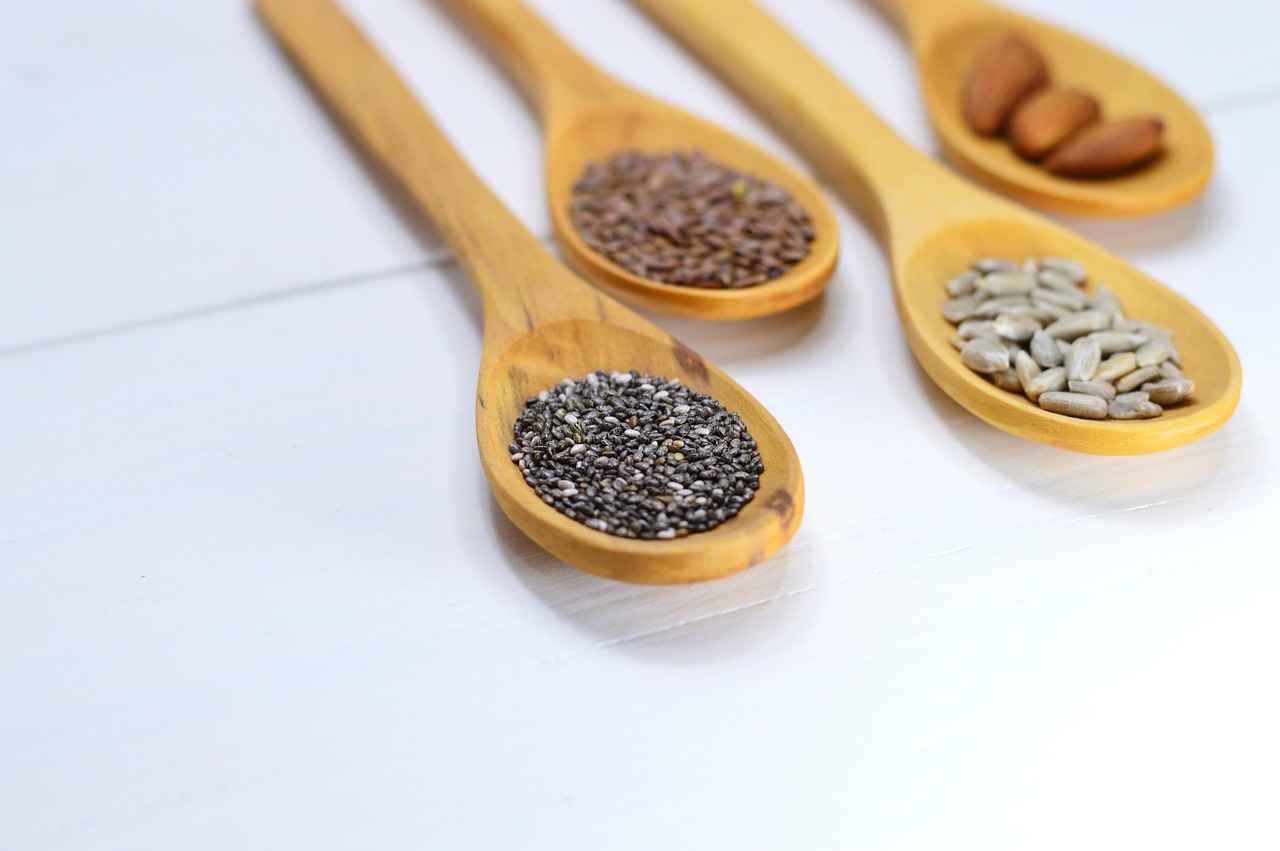
How Do Chia Seeds Support Bone Health?
Chia seeds have emerged as a popular superfood, celebrated not only for their versatility in culinary applications but also for their remarkable health benefits. Among these benefits, one of the most significant is their role in supporting bone health. This article delves into how chia seeds contribute to strong bones and help prevent conditions such as osteoporosis.
Chia seeds are a powerhouse of essential minerals that are crucial for maintaining healthy bones. They are particularly rich in:
- Calcium: A vital mineral known for its role in building and maintaining strong bones. Just two tablespoons of chia seeds provide about 18% of the recommended daily intake of calcium.
- Phosphorus: This mineral works in tandem with calcium to form bone structure and is essential for bone mineralization.
- Magnesium: Important for converting vitamin D into its active form, magnesium helps regulate calcium levels in the body and supports bone density.
The combination of calcium, phosphorus, and magnesium in chia seeds creates a synergistic effect that enhances bone health. Calcium provides the foundational structure of bones, while phosphorus supports the formation of bone tissue. Magnesium, on the other hand, not only aids in calcium absorption but also plays a role in the conversion of vitamin D, which is essential for calcium metabolism. A deficiency in any of these minerals can lead to weakened bones and an increased risk of fractures.
Maintaining strong bones is crucial for overall health, especially as we age. Conditions like osteoporosis can lead to brittle bones, making individuals more susceptible to fractures and injuries. By incorporating chia seeds into your diet, you can help fortify your bones and reduce the risk of such conditions.
Incorporating chia seeds into your diet is simple and versatile. Here are some practical ways to enjoy them:
- Add them to smoothies for a nutrient boost.
- Mix them into yogurt or oatmeal for added texture and nutrition.
- Use them as an egg substitute in baking by mixing chia seeds with water.
- Sprinkle them on salads or incorporate them into homemade energy bars.
While chia seeds are generally safe for most people, it’s essential to consume them in moderation. Overconsumption can lead to digestive discomfort, such as bloating or gas. Additionally, individuals with allergies to seeds should exercise caution. Always consult with a healthcare professional if you have concerns about dietary changes.
In summary, chia seeds are not only a versatile food option but also a rich source of essential minerals that support bone health. By including them in your daily diet, you can take proactive steps towards maintaining strong bones and preventing osteoporosis.
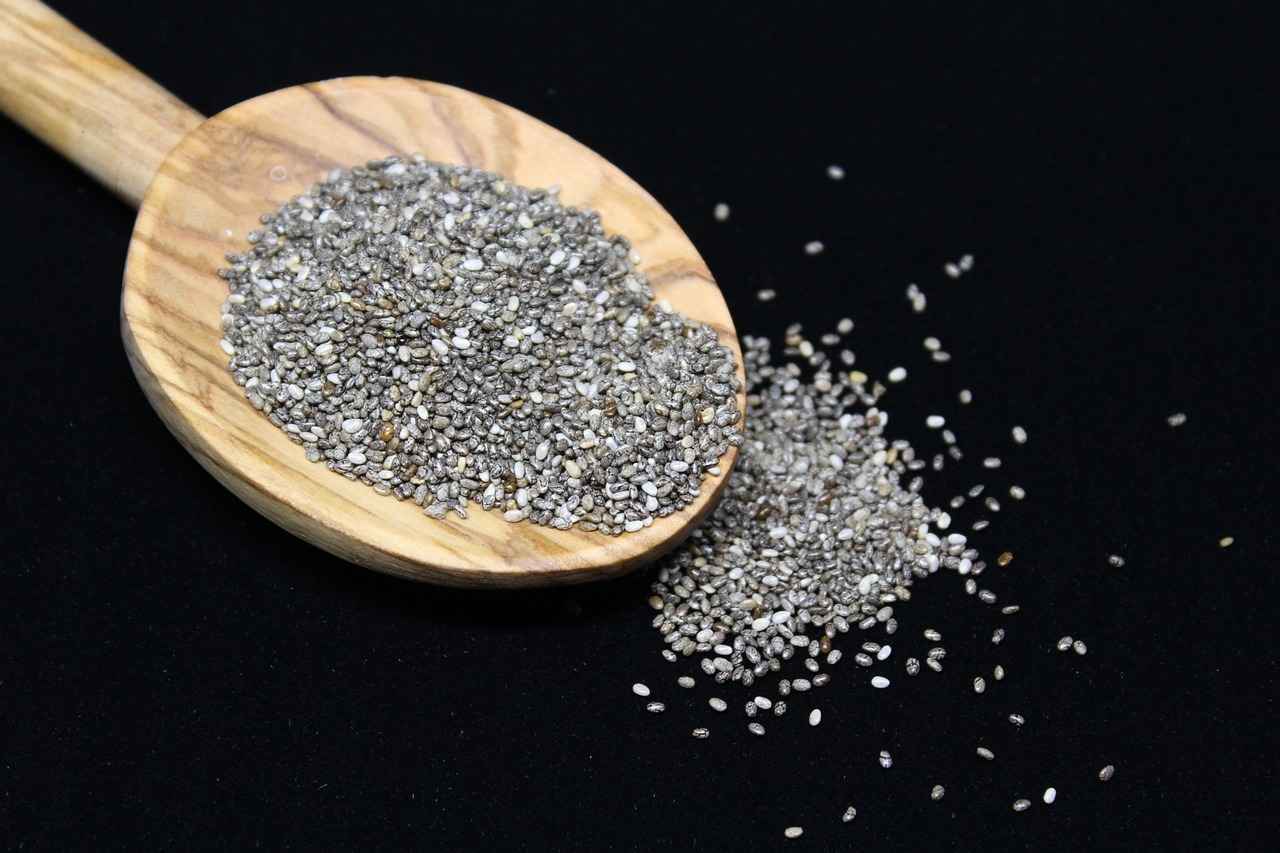
What Role Do Chia Seeds Play in Blood Sugar Regulation?
Chia seeds, often hailed as a superfood, possess remarkable properties that extend beyond their tiny size. Among their myriad benefits, one of the most significant is their impact on blood sugar regulation. Understanding how chia seeds function in this capacity can be vital for individuals seeking to maintain stable blood sugar levels and reduce the risk of diabetes.
The secret lies in the high content of soluble fiber found in chia seeds. This type of fiber has the unique ability to form a gel-like substance when mixed with water. As chia seeds absorb liquid, they swell and create a viscous gel. This gel slows down the rate of digestion and the absorption of carbohydrates in the body, leading to a more gradual release of glucose into the bloodstream. As a result, individuals experience fewer spikes and drops in blood sugar levels, which can be particularly beneficial for those managing diabetes or prediabetes.
Moreover, the soluble fiber in chia seeds can enhance feelings of fullness, which may lead to reduced overall calorie intake. This aspect is crucial, as maintaining a healthy weight is an important factor in blood sugar management. When combined with a balanced diet, chia seeds can support weight loss efforts, making it easier to keep blood sugar levels in check.
Research indicates that incorporating chia seeds into the diet can have a positive effect on insulin sensitivity. Insulin is the hormone responsible for regulating blood sugar levels, and improved sensitivity means the body can use insulin more effectively. This is particularly important for individuals with insulin resistance, a common issue in type 2 diabetes.
In addition to their fiber content, chia seeds are rich in antioxidants, which help combat oxidative stress in the body. Oxidative stress can contribute to inflammation and is linked to various chronic diseases, including diabetes. By reducing oxidative stress, chia seeds may further support overall metabolic health.
Incorporating chia seeds into your diet is straightforward and versatile. They can be added to smoothies, oatmeal, yogurt, and salads, or used as an egg substitute in baking. For those looking to make chia pudding, simply combine chia seeds with your choice of milk and let them sit until they absorb the liquid and thicken. This not only creates a delicious treat but also maximizes the health benefits associated with these tiny seeds.
While chia seeds offer numerous benefits, it is essential to consume them in moderation. Overconsumption may lead to digestive discomfort, particularly for those not accustomed to high-fiber diets. A typical serving size is about 1-2 tablespoons, which can easily be integrated into daily meals.
In summary, chia seeds play a significant role in blood sugar regulation through their high soluble fiber content, which slows carbohydrate absorption and promotes stable blood sugar levels. Their ability to enhance feelings of fullness and support weight management further contributes to their effectiveness in maintaining healthy blood sugar. By including chia seeds in your diet, you can take a proactive approach to your health and well-being.

Can Chia Seeds Enhance Athletic Performance?
Chia seeds have gained considerable attention in the athletic community, and for good reason. These tiny seeds are not just a trendy superfood; they are packed with nutrients that can significantly benefit athletes and fitness enthusiasts alike. Their unique properties make them a popular choice for those seeking to boost their energy levels and improve overall performance during workouts.
One of the primary reasons athletes favor chia seeds is their ability to provide sustained energy. Unlike simple carbohydrates that can cause energy spikes and crashes, chia seeds release energy slowly, ensuring that athletes maintain their stamina throughout prolonged physical activities. This makes them an ideal snack before or during intense workouts.
Additionally, chia seeds are rich in omega-3 fatty acids, which are essential for reducing inflammation in the body. This is particularly beneficial for athletes who often experience muscle soreness and fatigue after rigorous training sessions. By incorporating chia seeds into their diet, athletes can potentially speed up recovery times and reduce muscle damage.
Moreover, chia seeds are an excellent source of protein, containing all nine essential amino acids. This makes them a great option for muscle repair and growth, crucial for anyone engaged in strength training or endurance sports. The protein content in chia seeds can help athletes meet their daily nutritional requirements without relying solely on animal products.
Another advantage of chia seeds is their high fiber content. This not only aids in digestion but also helps in maintaining a healthy weight. For athletes, managing body composition is vital, and the soluble fiber in chia seeds can promote a feeling of fullness, which may prevent overeating and support weight management efforts.
Chia seeds are also incredibly versatile and can be easily incorporated into various meals. They can be added to smoothies, yogurt, oatmeal, or even used as a thickening agent in soups and sauces. This adaptability allows athletes to enjoy the benefits of chia seeds without altering their favorite meals significantly.
In terms of hydration, chia seeds have the unique ability to absorb water—up to 12 times their weight. This property can aid in hydration during long workouts, as they can help retain fluids in the body, making them an excellent addition to sports drinks or electrolyte solutions.
For those looking to enhance their athletic performance, incorporating chia seeds into their diet can be a game changer. However, it is essential to consume them in moderation, as excessive intake can lead to digestive discomfort. A typical serving size is about 1-2 tablespoons per day, which can easily be adjusted based on individual needs and preferences.
In summary, chia seeds offer a plethora of benefits that can enhance athletic performance. From providing sustained energy and aiding in recovery to supporting muscle growth and hydration, these tiny seeds are a powerhouse of nutrition. Whether you’re a seasoned athlete or just starting your fitness journey, consider adding chia seeds to your diet for a natural boost in performance.

How Can You Incorporate Chia Seeds into Your Diet?
Incorporating chia seeds into your diet is not only simple but also a delicious way to boost your nutritional intake. These tiny seeds can be added to a variety of dishes, making them a versatile ingredient in your kitchen. Here are some practical and creative ways to include chia seeds in your meals:
- Smoothies: Chia seeds can be blended into your favorite smoothies. They add a delightful texture and a nutritional punch. Just a tablespoon can provide a significant boost of fiber and omega-3 fatty acids.
- Yogurt: Sprinkle chia seeds over your morning yogurt for added crunch. They can absorb moisture and create a delightful gel-like consistency, enhancing both flavor and nutrition.
- Salads: Toss chia seeds into salads for an extra layer of texture and nutrients. They pair well with leafy greens and can absorb dressings, making each bite flavorful.
- Baked Goods: Incorporate chia seeds into muffins, bread, and pancakes. They can replace eggs in vegan recipes when soaked in water, providing a binding agent while boosting the nutritional profile.
- Chia Pudding: One of the most popular ways to enjoy chia seeds is by making chia pudding. Mix chia seeds with milk (dairy or plant-based) and a sweetener of your choice, then let it sit overnight. The result is a creamy, nutritious dessert or breakfast option.
- Soups and Stews: Add chia seeds to soups and stews as a thickening agent. They will absorb liquid and create a heartier texture while enriching the dish with nutrients.
- Energy Bars: Homemade energy bars can benefit from the inclusion of chia seeds. They provide a good source of protein and healthy fats, making them an excellent snack for on-the-go energy.
When using chia seeds, it’s essential to remember that they can absorb a considerable amount of liquid—up to 12 times their weight. This property makes them particularly effective in recipes that require thickening or binding. However, it’s advisable to drink plenty of water when consuming chia seeds, especially in larger quantities, to avoid digestive discomfort.
Chia seeds are not just a nutritional powerhouse; they also offer a unique texture and versatility that can enhance a wide range of dishes. Whether you’re looking to boost your smoothies, add a nutritious crunch to your salads, or create delicious desserts, chia seeds can easily fit into your dietary habits. Experimenting with different recipes will allow you to discover the best ways to enjoy these tiny seeds while reaping their health benefits.

Are There Any Potential Side Effects of Chia Seeds?
Chia seeds have become a staple in many health-conscious diets due to their impressive nutritional profile and myriad health benefits. However, it is essential to understand that even the healthiest foods can have potential side effects, especially when consumed in excess. This section delves into the potential side effects of chia seeds, emphasizing the importance of moderation.
While chia seeds are generally regarded as safe for consumption, some individuals may experience certain side effects, particularly if they consume them in large quantities. Below are some potential concerns:
- Digestive Issues: Chia seeds are high in fiber, which can lead to digestive discomfort if introduced too quickly into the diet. Overconsumption may result in bloating, gas, or diarrhea, especially for those who are not accustomed to a high-fiber diet.
- Allergic Reactions: Although rare, some people may have an allergic reaction to chia seeds. Symptoms can include itching, rash, or more severe reactions like difficulty breathing. If you suspect an allergy, it is crucial to consult a healthcare professional.
- Swelling in the Esophagus: Chia seeds can absorb up to 12 times their weight in water. If consumed dry without adequate fluid intake, they may swell in the esophagus, leading to a potential blockage. To avoid this, it is advisable to soak chia seeds before consumption.
- Blood Thinning Effects: Chia seeds are rich in omega-3 fatty acids, which can have a blood-thinning effect. Individuals taking anticoagulant medications should consult their healthcare provider before adding chia seeds to their diet.
To enjoy the health benefits of chia seeds while minimizing the risk of side effects, consider the following tips:
- Start Slow: If you are new to chia seeds, begin with small amounts (1 teaspoon) and gradually increase your intake to allow your digestive system to adjust.
- Hydrate: Always consume chia seeds with plenty of water or in liquid dishes to prevent them from expanding in the esophagus.
- Consult a Professional: If you have pre-existing health conditions or are pregnant, it’s wise to consult a healthcare professional before incorporating chia seeds into your diet.
While chia seeds offer numerous health benefits, certain individuals may need to avoid or limit their intake:
- People with Allergies: Those who have known allergies to chia seeds or related plants should steer clear of them.
- Individuals with Digestive Disorders: Those with conditions like irritable bowel syndrome (IBS) may experience exacerbated symptoms from the high fiber content.
- Pregnant and Nursing Women: While chia seeds can be nutritious, pregnant or nursing women should consult their healthcare provider before adding them to their diet.
In conclusion, while chia seeds are a nutritious addition to many diets, it is essential to consume them in moderation to avoid potential side effects. By being mindful of your intake and understanding your body’s response, you can enjoy the numerous health benefits that chia seeds have to offer.
Frequently Asked Questions
- What are chia seeds and where do they come from?
Chia seeds are tiny, nutrient-rich seeds from the Salvia hispanica plant, which is native to Mexico and Guatemala. They’re celebrated for their health benefits and culinary versatility.
- How can chia seeds improve my digestive health?
The high fiber content in chia seeds promotes regular bowel movements and supports gut health, making them a fantastic addition to your diet for digestive wellness.
- Can chia seeds help with weight loss?
Absolutely! Chia seeds absorb water and expand in your stomach, creating a feeling of fullness that can help you eat less and manage your weight more effectively.
- Are chia seeds good for heart health?
Yes! Rich in omega-3 fatty acids, chia seeds can help lower cholesterol levels and reduce inflammation, contributing to better heart health.
- How do I incorporate chia seeds into my diet?
You can easily add chia seeds to smoothies, yogurt, salads, or even baked goods. They’re incredibly versatile and can enhance the nutritional value of your meals!
- Are there any side effects of consuming chia seeds?
While generally safe, consuming too many chia seeds may lead to digestive issues or allergic reactions in some individuals. Moderation is key!

